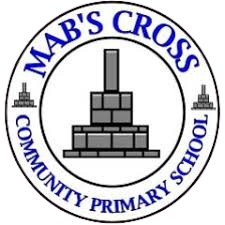Geography
MAB’S CROSS PRIMARY SCHOOL
GEOGRAPHY CURRICULUM
INTENT
The geography curriculum at Mab’s Cross strives to create opportunities which enable our pupils to develop a sense of wonder in the world around them. We want our pupils to be inquisitive about their world and develop an informed concern about the quality of the environment, the use of resources and the future of human habitat, thereby enhancing pupils’ sense of responsibility for the care of the Earth and its people.
Throughout a child’s journey through school, the geography curriculum has been carefully designed, planned and sequenced alongside our scheme, Curriculum Maestro, to ensure our topics are progressive, engaging and provide a thematic approach to learning that is mapped to ensure comprehensive coverage of national expectations.
We have carefully mapped our provision to ensure that each project builds on prior knowledge and understanding alongside developing key skills such as an ability to use maps, including digital maps, atlases, and ask valuable questions and conduct research in an effective, efficient way during fieldwork.
As pupils progress through school, their growing knowledge about the world helps them to deepen their understanding of the interaction between physical and human processes. Geographical knowledge, understanding and skills provide the framework that explains how the Earth’s features are shaped, interconnected and change over time. This geographical knowledge alongside a developing sense of their role as a global citizen enables them to understand wider global issues by the time they reach the end of Key Stage 2.
Beyond the classroom, we use our school grounds, local area and field trips to allow for rich, meaningful experiences that cement knowledge and engagement and ensure their learning is embedded in practice; providing pupils with the chance to demonstrate progression of skills and develop as ‘geographers’.
IMPLEMENTATION
At Mab’s Cross, geography is led by a passionate team of teachers who have a good knowledge of geography and provide support for those teaching outside their main areas of expertise. As members of the Geography Association and Curriculum Maestro, teachers have access to a wide range of support and up-to-date knowledge of continuing developments, resources and CPD. Teachers are provided with enquiry led medium term plans, knowledge organisers and topic resource boxes as well as time spent planning together to ensure all teachers feel confident in their geography teaching.
In lessons, children use knowledge organisers to keep key information and vocabulary fresh in their minds, which helps them to recall prior learning and use it to inform their understanding of their current topic. Lessons begin with a question, after which children are guided by the teacher on the best tools to answer the question. This may be research, use of maps and atlases or a fieldwork investigation. This allows children’s knowledge and skills to develop together, producing a deeper understanding of the topic being studied.
Assessments are also made based on the children’s consideration of a ‘big question’, producing a piece of work to demonstrate their knowledge and depth of understanding. End of topic curriculum quizzes are also used to review learning and check that children know key skills which will help them in future geography lessons. Teachers constantly monitor children’s understanding by marking their work and questioning based on the knowledge organiser at the beginning of each topic.
IMPACT
By the end of their time at Mab’s Cross, children should be able to demonstrate a secure understanding of place, knowing the names of the continents and some notable locations in each. They should also be able to name the four countries that make up the UK and have studied some key human and physical features of these nations. When presented with a geographical question, children should, with the teacher’s guidance, be able to use a variety of skills to help answer the query. Children will be able to use their knowledge of geography to deepen their understanding of history, science and other subjects, as place, space and physical processes have a huge impact on those disciplines.
